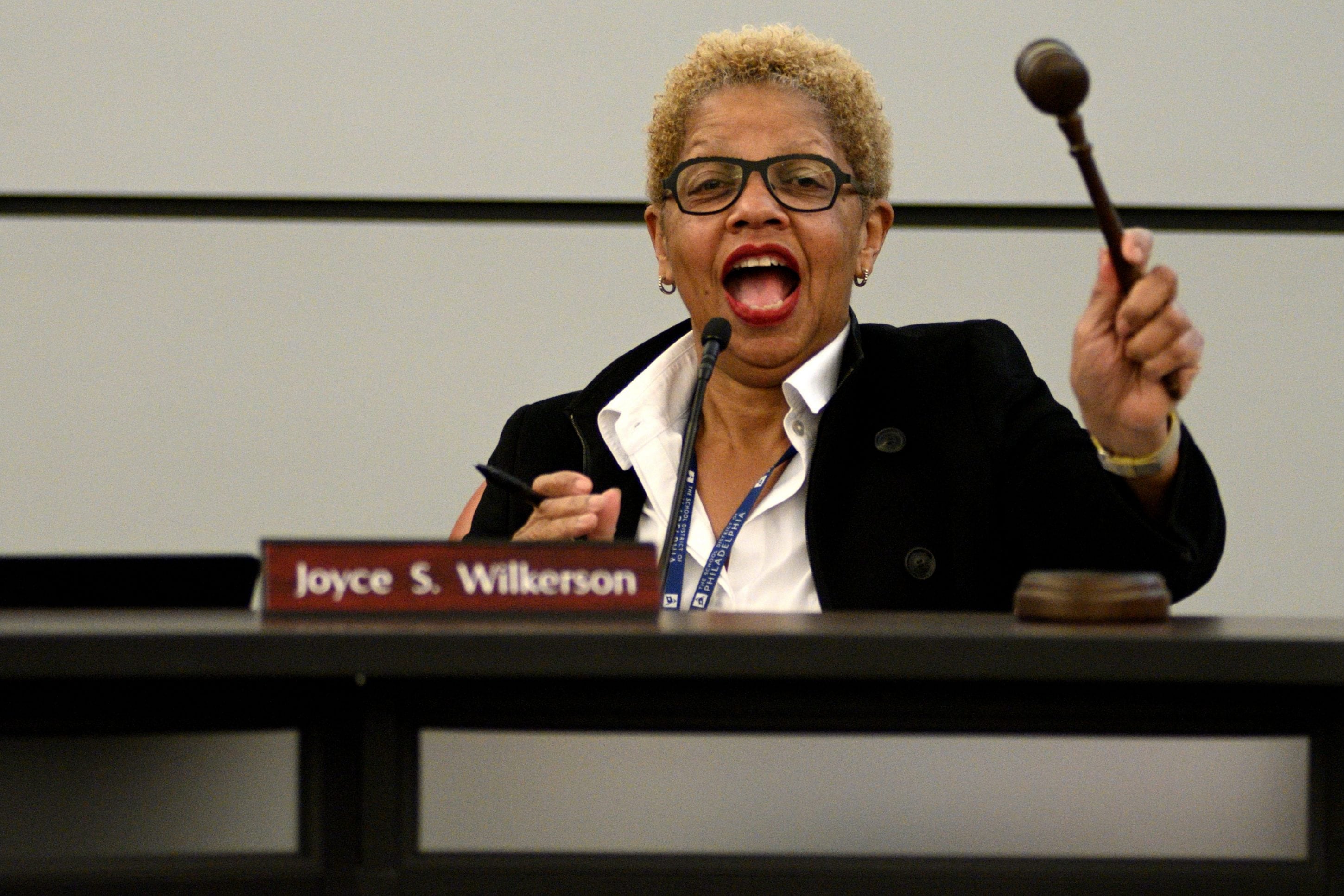The Philadelphia Board of Education’s decision to limit the number of speakers at its regular meetings is unlawful, according to the American Civil Liberties Union — and three City Council members are asking board members to reconsider the policy.
The ACLU warned in a letter sent to the board earlier this month that the new policy could result in a lawsuit. Asked if they plan to sue, Mary Catherine Roper, the organization’s deputy legal director, said “we are reviewing our options.”
The new policy restricts the numbers of speakers at each public meeting and shortens the time each has to deliver remarks, among other changes. It went into effect at the January board meeting.
City Council members Helen Gym, Kendra Brooks and Jamie Gauthier also urged the board, in a letter sent Tuesday, to amend the rules because they “restrict public input at a time when community voice, buy-in, and trust is urgently needed.”
Roper said in a Feb. 9 letter that the state Sunshine Act “guarantees the rights of residents of Philadelphia to provide public comment on matters that are or may be before the Board“ and “does not allow it to limit the number of individuals” who can speak.
In a letter of response, board of education President Joyce Wilkerson disputed the ACLU’s position, saying that the board’s new procedures are “reasonable and compliant under the letter and spirit of the law.”
The policy change was introduced in December as part of the board’s reframing of its leadership around “goals and guardrails” that prioritize student achievement. Key to the new focus has been an overhaul of what happens at board meetings. While the meetings have always included presentations, now the board spends between 90 minutes and two hours questioning Superintendent William Hite about newly developed reports around academic measurements designed to determine if students are on track to graduate with skills they need to succeed — and if not, what to do about it.
As part of the restructuring, the board also decided to limit the number of speakers allowed to comment at any one meeting to 10 students and 30 members of the public, and to cut their speaking time from three minutes to two. In addition, the window of time for getting on the speakers’ agenda has been shortened from two days to one. And speakers who spoke at the board’s prior meeting are put on a waiting list to see if new speakers fill out the available slots.
The new policy also eliminated two committees, on academics and finances, where the public could speak and engage with board members.
“The board is trying to diversify the types of input it gets and the opportunities to provide input,” Wilkerson said. When the district returned to local control in 2018 after 17 years under a state-run School Reform Commission, the city’s home rule charter was amended to allow for an advisory council to advise its members, she said. That council includes parents, community members, retired educators and others, she said, and has proven to be a valuable source of community input.
The board also accepts unlimited written comments on agenda items it is considering, she said, and is planning various neighborhood town halls to its regular public engagement.
That response hasn’t mollified the board’s most attentive critics, who say none of that is a replacement for comment on immediate action items at meetings that are regularly covered in the press.
“It’s wrong, it’s truly wrong,” said Lisa Haver of the Alliance for Philadelphia Public Schools, a watchdog group, of the new policy. At each meeting, she and two or three other members, all retired district employees, critique board policies and items on the agenda for a final vote.
The organization sued the SRC under the Sunshine Act for holding an early morning meeting in 2014 to cancel the teachers’ contract. It also threatened to sue the board after it walked out of a raucous meeting that protestors had taken over and continued its business in another room.
On occasion, board meetings, which generally begin at 4 p.m., go on past midnight. Last July, 150 speakers signed up, almost all to protest the district’s plan to reopen for hybrid learning in September. Wilkerson said that the speakers weren’t representative of the whole community, noting that about 30% of parents chose hybrid learning in a fall survey.
She also said that eight or nine-hour meetings can be unproductive and exhausting for the members, who volunteer their time.
When the pandemic ends, she said the board will continue to allow testimony via Zoom for people who cannot travel or attend a particular in-person session.
Other school boards limit the length of their meetings, said Chris McGinley, a former Philadelphia board member who also served as a superintendent in Cheltenham and Lower Merion.
McGinley, who left the board in April, said that his main objection to the new procedures is the elimination of the committees, not necessarily the speaker limits.
“The goals and guardrails could have been applied to the existing committee structure to promote active dialogue between the public and the board,” McGinley said.
Haver said that one reason the public is so aggrieved has to do with when the policy change was put into effect.
“One problem is how they did it,” she said. “This is not the time, when people are isolated, to be isolating people even more.”






